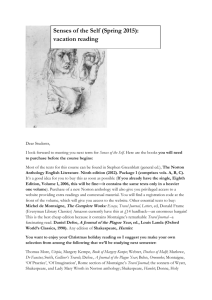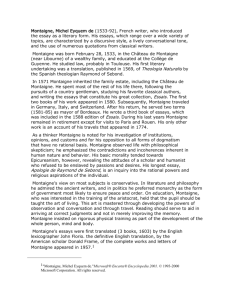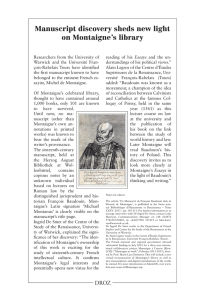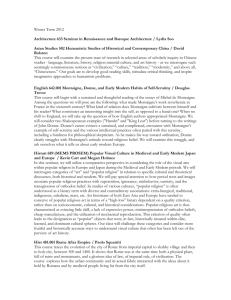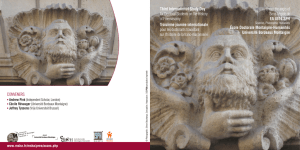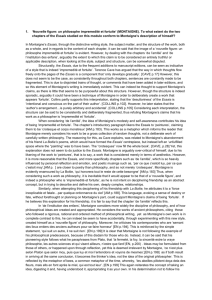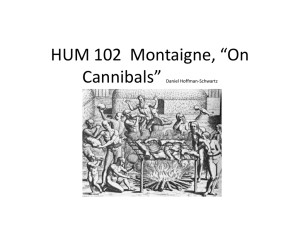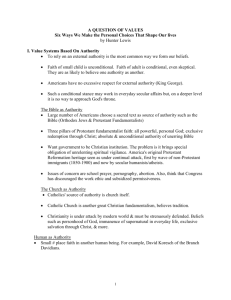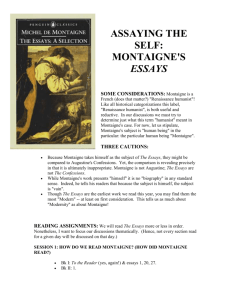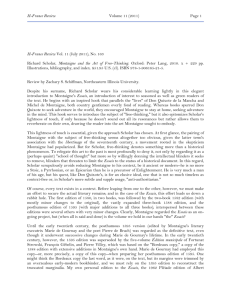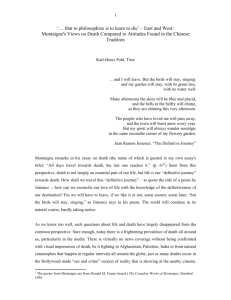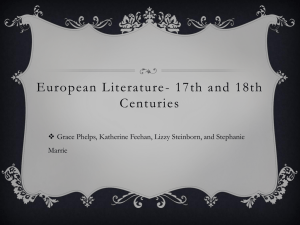Sept. 12
advertisement
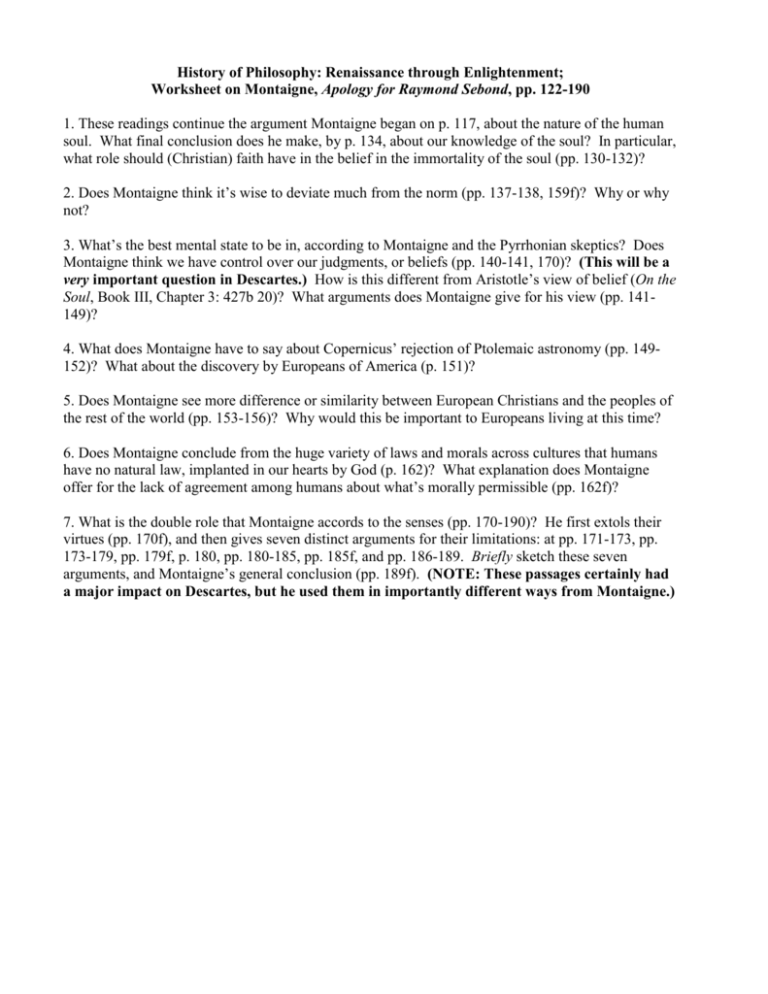
History of Philosophy: Renaissance through Enlightenment; Worksheet on Montaigne, Apology for Raymond Sebond, pp. 122-190 1. These readings continue the argument Montaigne began on p. 117, about the nature of the human soul. What final conclusion does he make, by p. 134, about our knowledge of the soul? In particular, what role should (Christian) faith have in the belief in the immortality of the soul (pp. 130-132)? 2. Does Montaigne think it’s wise to deviate much from the norm (pp. 137-138, 159f)? Why or why not? 3. What’s the best mental state to be in, according to Montaigne and the Pyrrhonian skeptics? Does Montaigne think we have control over our judgments, or beliefs (pp. 140-141, 170)? (This will be a very important question in Descartes.) How is this different from Aristotle’s view of belief (On the Soul, Book III, Chapter 3: 427b 20)? What arguments does Montaigne give for his view (pp. 141149)? 4. What does Montaigne have to say about Copernicus’ rejection of Ptolemaic astronomy (pp. 149152)? What about the discovery by Europeans of America (p. 151)? 5. Does Montaigne see more difference or similarity between European Christians and the peoples of the rest of the world (pp. 153-156)? Why would this be important to Europeans living at this time? 6. Does Montaigne conclude from the huge variety of laws and morals across cultures that humans have no natural law, implanted in our hearts by God (p. 162)? What explanation does Montaigne offer for the lack of agreement among humans about what’s morally permissible (pp. 162f)? 7. What is the double role that Montaigne accords to the senses (pp. 170-190)? He first extols their virtues (pp. 170f), and then gives seven distinct arguments for their limitations: at pp. 171-173, pp. 173-179, pp. 179f, p. 180, pp. 180-185, pp. 185f, and pp. 186-189. Briefly sketch these seven arguments, and Montaigne’s general conclusion (pp. 189f). (NOTE: These passages certainly had a major impact on Descartes, but he used them in importantly different ways from Montaigne.)
